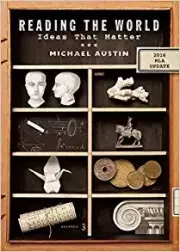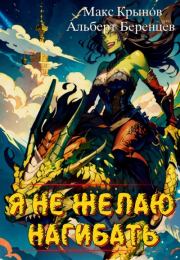Daniil Andreyev - The Rose of the World
 | Название: | The Rose of the World |
Автор: | Daniil Andreyev | |
Жанр: | Старинная литература | |
Изадано в серии: | неизвестно | |
Издательство: | неизвестно | |
Год издания: | - | |
ISBN: | неизвестно | |
Отзывы: | Комментировать | |
Рейтинг: | ||
Поделись книгой с друзьями! Помощь сайту: донат на оплату сервера | ||
Краткое содержание книги "The Rose of the World"
This book was begun at a time when the threat of an unparalleled disaster hung over the heads of humanity-when a generation only just recuperating from the trauma of the Second World War discovered to its horror that a strange darkness, the portent of a war even more catastrophic and devastating than the last, was already gathering and thickening on the horizon. I began this book in the darkest years of a dictatorship that tyrannized two hundred million people. I began writing it in a prison designated as a «political isolation ward.» I wrote it in secret. I hid the manuscript, and the forces of good-humans and otherwise-concealed it for me during searches. Yet every day I expected the manuscript to be confiscated and destroyed, just as my previous work-work to which I had given ten years of my life and for which I had been consigned to the political isolation ward-had been destroyed.
Читаем онлайн "The Rose of the World". [Страница - 7]
The third distinction concerns dynamism of outlook. There have already been religions that have incorporated concepts of metahistory-Judaism and early Christianity-but only in remote and brief periods during their formation did they try to formulate a spiritual framework to explain the historical processes taking place at the time. During those brief, half-forgotten times, the astonishing insights of the Apocalypse remained hidden from people's eyes by a blanket of allegories and innuendos; its code of images allowed for every imaginable interpretation. Thus, a genuine framework for understanding historical processes did not take shape. Historical knowledge was as yet scarce and limited in scope, geographical horizons were small, and the mystical mind was not yet ready to grasp the internal logic of metahistory and the incredible complexity of Shadanakar.
But the appearance of the Rose of the World has been preceded by the scientific era, an era that revolutionized humanity's view of the universe, of nations, of cultures, and of their fates. It has been preceded by yet another era: one of radical social changes and upheavals, of revolutions, and of world wars. Both kinds of phenomena have loosened humanity's psychological crust, which had remained for so many centuries unbroken. In that soil, plowed up by the iron teeth of historical catastrophes, the seeds of metahistorical revelation will fall. And the entire planetary cosmos will reveal itself to people's spiritual sight as a constantly evolving system of variegated worlds, a system speeding toward a blindingly brilliant goal, spiritualized and transformed from century to century and from day to day. Images from future eras are beginning to show through our reality-each in all its inimitable uniqueness, in its correlation of metahistorical forces battling within it. The goal of the Rose of the World is to become a receptor, fosterer, and interpreter of that knowledge. The collective mystical consciousness of all living humanity, it will illumine the meaning of the historical processes of the past, present, and future in order to assume creative guidance of those processes. If one may speak of any dogmas in its teaching, then those dogmas will be deeply dynamic, multifaceted, and capable of further enrichment, development, and long-range evolution.
From that follows the fourth distinction of the Rose of the World, which entails a program of consistent, spiritual-historical tasks that are entirely concrete and achievable in principle. I will list once again the foremost of them: the unification of the planet under a federation of states overseen by a moral supervisory body; the establishment of economic well-being and a high standard of living in every country; the ennobling education of younger generations; the reunification of the Christian churches and the creation of a free amalgamation of all religions of Light; the transformation of the planet into a garden and the state into a community. But those are merely tasks of the first order. Their realization will open the way to tasks of an even higher order- the spiritualization of nature.
Interreligiosity, the globality of its societal aspirations and their concrete nature, the dynamism of its outlook, and consistency in its global historical tasks-these are the characteristics that will distinguish the Rose of the World from all religions and churches of the past. The bloodlessness of its paths, the painlessness of its reforms, its kindness and consideration toward people, the waves of spiritual warmth that will emanate from it- these are the characteristics that will distinguish it from all sociopolitical movements of the past and present.
Obviously, the essence of the state, as well as the moral cast of society, cannot be transformed in the wink of an eye. An immediate and complete renunciation of coercion is pure fantasy. But that element will decrease over time and societal space. Every kind of discipline is made up of elements of coercion and consciousness, and one or another type of discipline results from the ratio of these two elements. Slave economies, prisons, and concentration camps boast a high percentage of coercion and an almost complete absence of consciousness. There is a slightly higher percentage of consciousness present during army drills. And further, to the extent that the element of coercion is weakened within disciplinary models, the categorical imperative of inner self-discipline grows and replaces it. The new pedagogy will be based on the fostering of that same impulse. Its principles and methods, as well as methods for the moral rehabilitation and rebirth of criminals, will be discussed in a later chapter. But it should be clear even now that the external stimulus of coercion will disappear quickest of all within the inner concentric circles of the Rose of the World, for those circles will be filled by the very people who have wed their entire life to its tasks and principles and no longer have any need of outside coercion. They will be its conscience, and who, if not they, should occupy the seats of the Upper Council?
Is it possible to overstate the edifying effect exerted by political systems where the worthiest people stand at the head of society, guiding and creating? Think not of those whose will is overdeveloped at the expense of other sides of their self and whose strength lies in their unscrupulous approach to means, but of those in whom will, reason, love, purity of thought, and a profound understanding of life are harmoniously developed and combined with conspicuous spiritual gifts-those we call living saints.
Recently we saw an example of just such a saint: we were witnesses to India's decisive hour and the great spirit of Gandhi. We were presented with an astonishing spectacle: a person wearing a loincloth, with no government authority, without a single soldier or servant at his command, without a roof over his head, became the conscience and the spiritual and political leader of three hundred million people. One soft-spoken word from him was enough to unite those millions in a massive, nonviolent struggle to free their country, in which the shedding of their enemy's blood gave rise to nationwide fasting and mourning.
It is easy to imagine how tragically the Indian people's historical course would have been altered if, instead of that saint, a person of a self-willed nature, like Mussolini or Stalin, had at that decisive minute stepped forward as leader-a so-called strong leader, a master of demagoguery and political intrigue, who masks his despotic nature behind fulsome speeches about the people's welfare! How skillfully he would have played on the baser instincts of the people, on their natural hatred for their conquerors, on their envy of the rich. What waves of fire and blood would have broken over India, flooding islands of high moral consciousness fostered and strengthened over thousands of years by the brightest children of that great people! And, in the end, what a tyranny such a person would have established over the exhausted country, taking advantage of the people's habit of obedience, formed through centuries of slavery. Gandhi channelled the country's thirst for self- determination and
--">Книги схожие с «The Rose of the World» по жанру, серии, автору или названию:
 |
| Michael Austin - Reading the World: Ideas That Matter Жанр: Старинная литература Год издания: 2015 |






